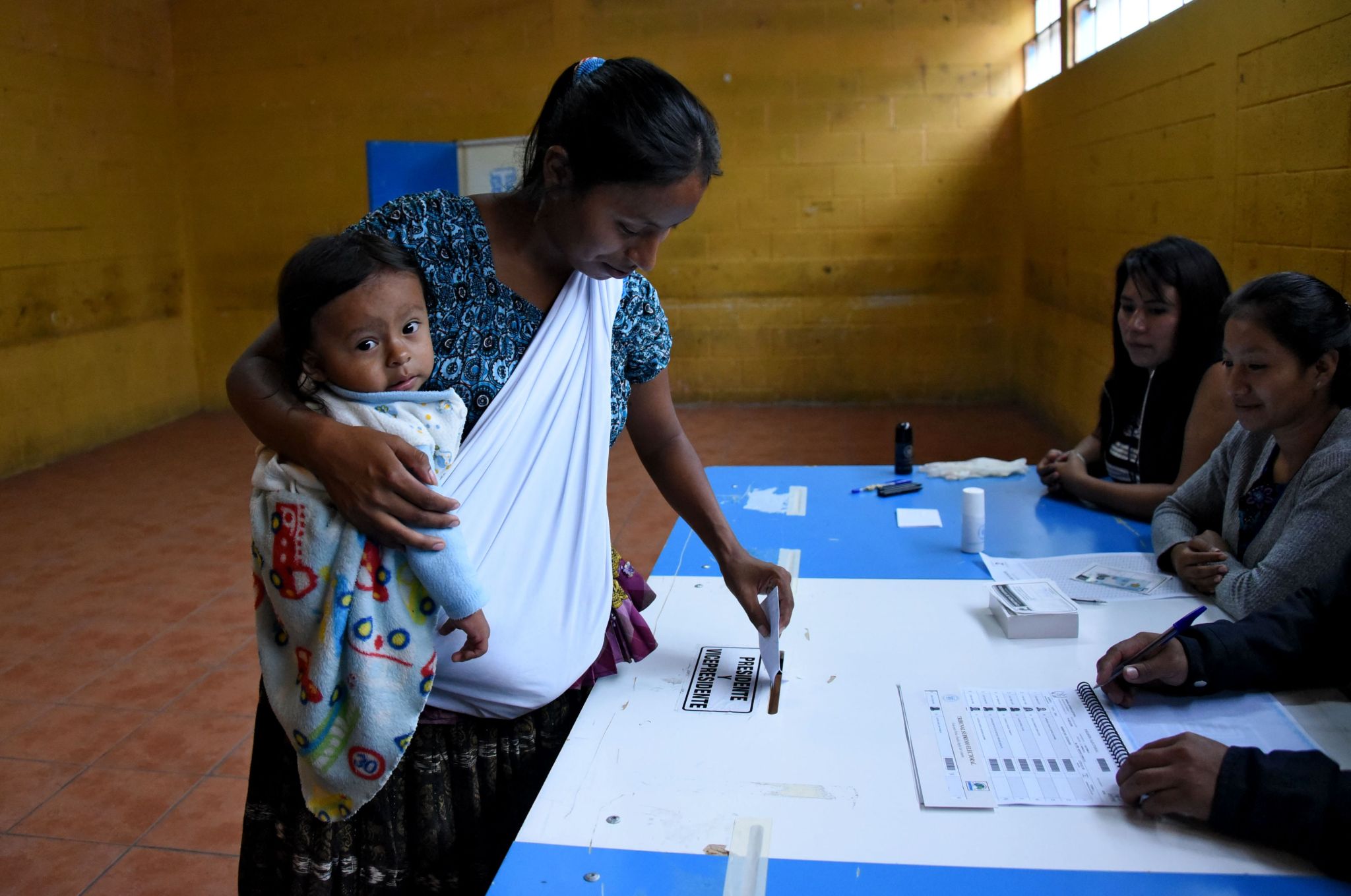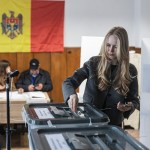IRI Pre-Election Assessment Mission to Bangladesh’…
From October 20 to 24, the International Republican Institute (IRI), a non-profit, non-partisan organization dedicated to promoting freedom and democracy…
Free and fair elections are critical to democratic governance and are under attack around the world. To guard against these threats and ensure that elections reflect the will of the people, IRI works with partners to expand voter education, maximize participation, mitigate electoral violence, and build confidence in electoral outcomes through independent international electoral observation missions.

IRI’s approach is rooted in the belief that the full and equal participation of all eligible citizens is essential for a country’s democratic success. These actors must be able to fulsomely participate during elections as voters, candidates, and observers, and between elections as advocates. Applying a citizen-centered lens, IRI designs electoral assistance initiatives based on the unique political dynamics and democratic context of a particular country.
By working with electoral institutions and citizen groups to design and develop innovative programmatic approaches, IRI strengthens electoral processes and guards them against internal and external challenges. IRI supports civic and voter education initiatives that enable citizens to make informed choices and mitigate subversion. Collaboration with citizen poll watchers allows independent assessments of the conduct of an election against regional and international standards.
IRI is a world-wide leader on electoral observation, having deployed observation missions to over 250 elections in more than 50 countries. By deploying professionalized international election observers, IRI has helped deter electoral malpractice – including political violence and fraud – and help ensure the process reflects the will of the people. IRI has also used these observation missions to promote commitments to fair participation in elections by political actors.
During and after Election Day, IRI programs build and sustain political will and consensus for key institutional and legislative reform. IRI supports the creation and sustainability of cross-sectoral, multi-stakeholder dialogues and thematic working groups that formulate and propose electoral reforms. Where political will for reform is absent, IRI helps fertilize the democratic aspirations of citizens by supporting citizen coalitions and year-round election reform advocacy.
In places where authoritarian regimes and malign actors wage ideological battles against democratic norms and institutions, elections have become the frontline in the ongoing struggle for democracy. As an endorser of the Declaration of Principles for International Election Observation and Code of Conduct for International Election Observers, IRI has published numerous reports on the overall quality of electoral processes and their adherence to internationally recognized standards.
IRI’s election observation methodology provides a framework for understanding long-standing and contemporary threats to election integrity. Using IRI’s evidence-based and proven field guides, staff and partners can rapidly analyze all aspects of an electoral cycle to identify democratic gaps in the campaign environment, constitutional and legal framework, election administration, information space, and campaign finance for a given election. Recognizing the essential role that citizen poll watchers play, IRI empowers citizen observers with tools and resources to independently assess the conduct of an election and, importantly, to confidently publish and defend pre- and post-election reports and recommendations.
Growing external interference from foreign autocrats, internal influence from malign actors, and new vulnerabilities to free and fair elections brought about by the digital transformation of society have tested public confidence in democratic institutions. Building resilient electoral institutions with the capacity to thwart long-standing and evolving threats requires sustained and coordinated effort.
Throughout the electoral cycle, IRI and its partners conduct pre- and post-election assessments and long- and short-term election observation that benchmark and document electoral progress or setbacks – including legislative reforms between election cycles.
During and after Election Day, IRI programs focus on operationalizing observer recommendations through advocacy campaigns and building political will and consensus for implementing reform agendas. By establishing cross-sectoral, multi-stakeholder dialogues and formation of thematic working groups, IRI helps ensure that proposed reforms are prioritized in legislative plenaries. Where political will for reform is absent, IRI helps to fertilize the democratic aspirations of citizens by supporting citizen-government coalitions and year-round election reform advocacy.
Elections are high-stakes events. While their success can help cement a path to democratization, electoral mismanagement or political manipulation can upend transfers of power and can lead to violent outcomes. Fomenting violence is a strategy that bad actors routinely employ to shape political outcomes.
IRI’s Institutional Electoral Violence (EV) Mitigation Framework provides a roadmap for understanding the drivers of electoral violence and proposes intervention strategies to mitigate the corrosive effect of EV on credible elections. The Framework consists of the Vulnerabilities to Electoral Violence (VEV) assessment, used to understand risks for violence. It also includes a Program Guide for Mitigating EV in Sub-Saharan Africa (and accompanying Evidence Briefer), which IRI uses to pair evidence-based programming with identified risks. The Guide is based on two years of research that interrogated and synthesized evidence on specific interventions employed in Africa to mitigate electoral violence.
Effective voter education starts early and continues throughout the election process. Voter education is especially critical in post-conflict and transitional countries where constituents may have new leaders or even a new system of government, and where the election could have an unprecedented impact on a country’s democratic trajectory.
Working with citizen groups, electoral management institutions, and non-governmental organizations, IRI enables its partners to conduct rigorous constituent outreach through dissemination of voter education materials designed to inform voters about steps of the voting process and to provide essential information about who is eligible to vote; where and how to register; how to check the voter lists; what type of elections are being held; where, when and how to vote; who the candidates are; and how to file complaints.
From October 20 to 24, the International Republican Institute (IRI), a non-profit, non-partisan organization dedicated to promoting freedom and democracy…

Chișinău, Moldova — On September 28, 2025, Moldova held parliamentary elections to select its next legislature—the first parliamentary vote under…
Abidjan, Côte d’Ivoire – To demonstrate international support for a credible electoral process, the International Republican Institute (IRI), a non-profit, non-partisan…
Abidjan, Côte d’Ivoire – L’International Republican Institute (IRI), une organisation non partisane à but non lucratif qui se consacre à…
Abidjan, Côte d’Ivoire – The International Republican Institute (IRI), a non-profit, non-partisan organization dedicated to advancing democracy and freedom globally, is…
IRI’s recent Rapid Response Technical Election Assessment examines the Philippines’ 2025 midterm elections, which occurred during a pivotal moment in…
Washington, DC – The International Republican Institute’s (IRI) International Election Observation Mission (IEOM) today released its final report on Georgia’s…
Chişinău, Moldova – The International Republican Institute’s (IRI) International Election Observation Mission (IEOM) today released its preliminary findings on Moldova’s…
Tbilisi, Georgia – The International Republican Institute’s (IRI) International Election Observation Mission (IEOM) today released its preliminary statement on Georgia’s…
Maputo, Mozambique – The International Republican Institute’s International Election Observation Mission issued the following statement today in response to the release…
Tbilisi, Georgia – The International Republican Institute (IRI) has announced the arrival of its short-term observers (STOs) as part of its…
Chişinău, Moldova – The International Republican Institute’s (IRI) International Election Observation Mission (IEOM) today released its preliminary statement on Moldova’s…